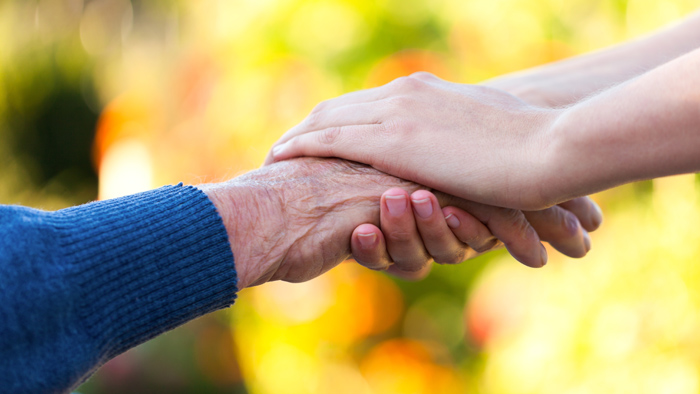
On a recent Sunday I heard a talk in which author/coach/lecturer/philanthropist David Ault said, “We begin hospice the day we are born.” David shared the Latin derivative meaning of the word hospes or hospice to include both “host” and “guest.” And, when you think about it, of course he’s right. It’s as simple as taking care of ourselves much as a host would take care of a guest. He went on to elaborate on the palliative nature of our self-care during the interim.
I heard this engaging message less than twenty four hours after hearing of a dear friend’s passing. My friend had been posting on Facebook until a few hours before he passed. Many of us who knew him from a working relationship and, lately with a more personal connection via social media, were surprised when this vibrant guy said he couldn’t go outside anymore because he’d been “…turned over to hospice.” And yet he was having company at his home, enjoying good food (he was a well-known chef/restaurant owner), laughing, connecting in person with friends and family, all the while sharing entertaining and funny stories on Facebook. I was shocked when his partner posted of his passing during all this activity.
The Value of Hospice
I always felt there was a sacred mystery surrounding the workings of hospice, and it’s only been since I’ve gotten older that its practice is something I’ve wanted to look into.
Hospice care focuses on relieving the pain and suffering sometimes associated with the final weeks or days of life, and is provided in a place of a person’s choosing, often in the home.
One of the most valuable aspects of hospice is that it considers the entire family, not just the patient. Patients and their loved ones are included in the decision-making process, and bereavement counseling is provided to the family after the death of their loved one.
Hospice allows patients to spend their last days in the comforting surroundings of their own home. Volunteer team members work with the family to provide the most appropriate level of medical, spiritual and emotional care for the patient at home.
In the clear majority of situations there is no cost to the patient or family for hospice services. Sometimes a small co-payment is required, especially in rural areas where team members have to travel long distances to provide service.
A ton of information is available on the creation and ongoing habits of hospice organizations throughout the world.
Between Now and Then
Isn’t it reassuring to know that hospice exists to aid our departure from the physical realm? The reassurance of its services allows me to focus on self-care before I need help in my transition.
As David Ault discussed, we’re still the host and the guest of ourselves, and how we treat both is up to us.

